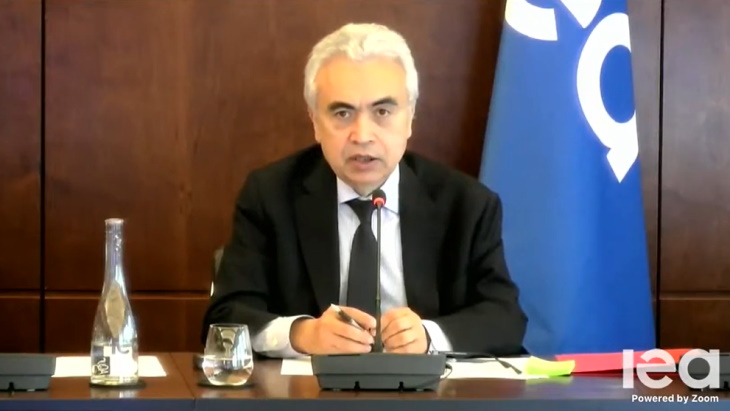EU Energy Policies 2020 is the latest in a series of regular in-depth reviews prepared by the agency, IEA Executive Director Fatih Birol said at yesterday's launch of the report. The comprehensive review across the entire energy system, including technology and innovation, is peer-reviewed by IEA members and partner countries, and makes evidence-based recommendations.
"This review comes at a crucial moment for several reasons. Firstly, it comes in the middle of the fundamental debate across the European Union about how we recover from the economic impact of COVID-19; secondly it comes during a major disruption of our energy systems which in a matter of months has produced changes that many people thought would take decades; and thirdly it comes as we continue our work to deliver the European Green Deal," European Commissioner for Energy Kadri Simson said. The Green Deal was launched last December by the European Commission in a bid to make the bloc climate neutral by 2050. The review supports the Commission's "firm commitment" to a green recovery, she said.
EU greenhouse gas emissions in 2019 were 23% lower than in 1990, meaning the bloc had already met its target of a 20% decline by 2020, the report finds. This year, the challenges of COVID-19 have pushed the world into a sharp economic downturn. Energy-related CO2 emissions in the EU declined by 8% during the first quarter of 2020 compared with the same period in 2019, and for the year 2020 as a whole, EU energy demand is expected to be 10% below the 2019 levels. However, avoiding a post-COVID "rebound" would be a key consideration for the future.
The European Commission last month presented its plans for a "resilient, inclusive and green" recovery in Europe while laying down foundations for a low-carbon future. Nuclear has not been specifically included in either the Green Deal, the EC recovery plan, nor in list of "sustainable activities" in the EU Taxonomy.
"With its recovery plans, the EU has a real opportunity to boost economic activity, create jobs and support the long-term transformation of its energy sector," Birol said.
The EU's nuclear plants currently provide a major part of the continent's low-carbon electricity, the IEA said, but the bloc is facing the retirement of half its nuclear power generation capacity over the next five years unless decisions are taken to extend plants' operating periods.
"Europe - and the world - does not have the luxury to exclude any low or zero carbon technologies," he said. "The IEA view is that we need all zero carbon technologies, given the order of magnitude of the challenge ahead of us," Birol said. Excluding nuclear would make reaching Europe's climate targets more challenging, he said.
The IEA's key recommendations to the EU are: to put the energy sector at the heart of COVID-19 recovery; to reduce regulatory and pricing barriers to boost energy efficiency, renewables and digitalisation; to keep all technology options on the table, by strengthening carbon pricing and "levelling the playing field" for investment and sustainable financing; and to place an ongoing focus on EU energy security, particularly in electricity and natural gas, Birol said.





_18570.jpg)
_16159.jpg)
_18938.jpg)
_33584.jpg)





